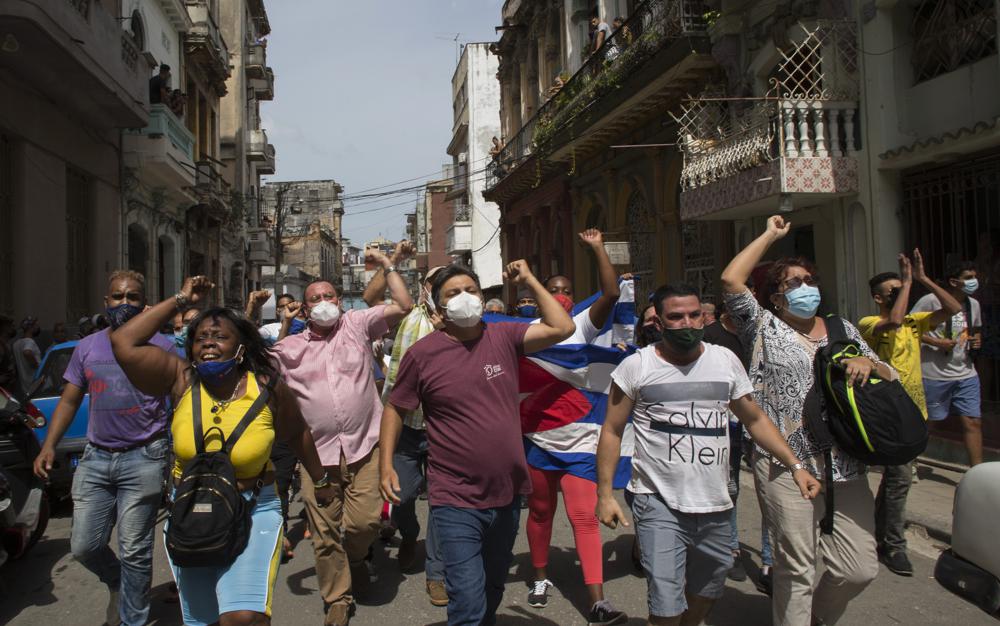Protests in Cuba could put pressure on gov’t but “caution is in order”—analysts
Fed up with shortages of food and medicine, rising prices, power outages, and the many more problems that have beset Cuba, angry Cuban citizens took to the streets some rare and large-scale demonstrations on July 11, which surprised not only the Cuban government but also the international community.
Cubans have been “tired of the government’s abuse,” said one protester interviewed by Politico. “Cubans are doing eight hours in line just to get a piece of bread. And at the same time, the housing situation is worse.”
As if this was not enough, the government had tried cut off the Internet as the sentiment against them spread like wildfire on Cuba’s social media space. This did not stop the protesters to rage against the dictatorial government. Their outcry were summed up in two powerful statements: “libertad” (freedom) and “We want change.”
Observers have drawn comparisons between Cuba’s protests and the ones that happened to its close allies—Venezuela and Nicaragua. Venezuela has had massive, sustained protests in past years, with a more organized opposition led by Juan Guaidó. Meanwhile, the 2018 anti-government protests in Nicaragua was dealt with violently by President Daniel Ortega’s government.
Cuba’ protests, however, “could not have been predicted,” said Michael Bustamante, an assistant professor of Latin American history at Florida International University in an interview with the NBC News.
“They were decentralized in the way they unfolded,” Bustamante said. “It wasn’t called for by the opposition, let alone the government. It just kind of happened.”
Paul J. Angelo, a fellow for Latin American studies at the Council on Foreign Relations, shared that “what’s different about the protests in Cuba by comparison to those in Venezuela and Nicaragua is that Cubans have been operating in a closed and repressive system for decades.”
Moreover, the protests Cuba do put pressure on the government “to make economic changes and to liberalize the politics within the one-party system,” said Arturo López-Levy, a former analyst with Cuba’s Interior Ministry and assistant professor at Holy Names University, who was also interviewed by NBC News.
But this does not guarantee any major political changes in the short term. It may however, “open the door for more than one candidate to run within their one-party system” by letting an independent candidate to run, just like how Iran allows moderate and conservative candidates to run in their elections, López-Levy explained.
“I think some caution is in order,” said Bustamante.



